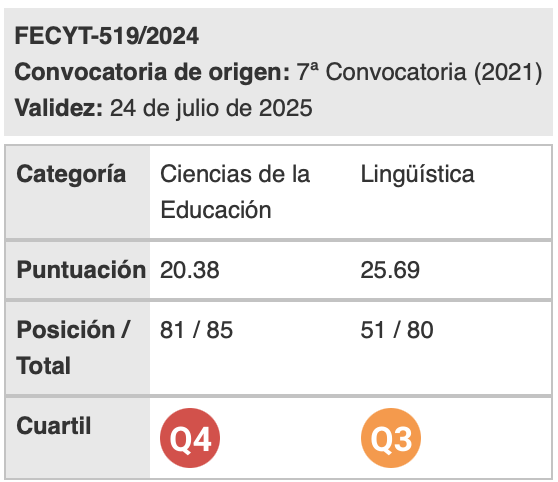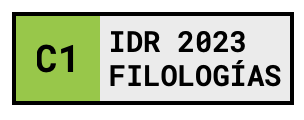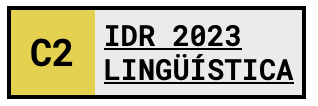Author stance in doctoral dissertations of native and non-native speakers of English: A corpus-based study on epistemic adverbs
Keywords:
academic writing, contrastive interlanguage analysis, epistemic adverb, stanceAbstract
Academic writing is not just about conveying an ideational ‘content’, it is also about the representation of the self (Hyland, 2002, p. 1092). It allows writers ‘to gain credibility by projecting an identity invested with the individual authority, displaying confidence in their evaluations and commitment to their ideas (Hyland, 2002, p. 1092). Our study concentrates on the epistemic adverbs used in conveying author stance in academic English. The Contrastive Interlanguage Analysis (Granger, 1996) was run to three sets of corpora comprising doctoral dissertations written by native and non-native academic authors of English. Epistemic adverbs occurring in the dissertations were identified through a computer programme and their frequencies were separately computed for each corpus. Lastly, a log-likelihood test was administered to see whether there is a statistically significant difference across the groups in concern concerning the use of these adverbs.
DOI: 10.20420/rlfe.2015.0013
Downloads
References
Adams, H. & Quintana-Toledo, E. (2013). Adverbial stance marking in the introduction and conclusion sections of legal research articles”. Revista de lingüística y lenguas aplicadas 8, 13-22.
Alonso-Almeida, F. (2012). Sentential evidential adverbs and authorial stance in a corpus of English computing articles. RESLA. Revista española de lingüística aplicada, 25(1), 15-31.
Biber, D., Johanson, S, Leech, G., Conrad, S., & Finegan, E. (1999). Longman grammar of spoken and written English. London: Longman.
Biber, D. (2006). University language: A corpus-based study of spoken and written registers. Amsterdam: John Benjamins.
Can, C. (2012). Uluslararası Türköğrenici İngilizcesi derleminde tutum belirteçleri. Dilbilim Araştırmaları, 1, 39-53.
Conrad, S, & Biber, D. (2000). Adverbial making of Stance in Speech and Writing”. In S. Hunston & G. Thompson (Eds.), Evaluation in text (pp. 56-73). Oxford: Oxford University Press.
Granger, S. (1996). From CA to CIA and back: An integrated approach to computerized bilingual and learner corpora. In K. Aijmer, B. Altenberg, & M. Johansson (Eds.), Languages in contrast (pp. 37-51). Lund: Lund University Press.
Hyland, K. (2002). Authority and invisibility: authorial identity in academic writing. Journal of Pragmatics, 34, 1091-1112.
Hyland, Ken. (2005). Stance and engagement: A model of Interaction in Academic Discourse. Discourse Studies, 7(2), 173-192.
Kotrč, M. (2012). Adverbials in the language of the press. Bachelor Thesis, Masaryk University.
Molina, S. (2012). Nonverbal markers of modality and evidentiality in MarENG. Revista de lenguas para fines específicos, 18, 45-70.
Rozumko, A. (2008). An interdisciplinary approach to teaching grammar to prospective teachers of English. In K. Bogacki, B. Głowacka, & D. Potocka (Eds.), Interdisciplinary perspectives in foreign language teacher education (pp. 309-318). Białystok: Wydawnictwo Uniwersytetu w Białymstoku.
Rozumko, A. (2012). Speech-act adverbs in English and Polish: A cross-linguistic and cross-cultural comparison. Białostockie Archiwum Językowe, 12, 183-196.
Scollon, R. (1994). As a matter of fact: the changing ideology of authorship and responsibility in discourse. World Englishes, 13, 34–46.
Scott, M. (2012). WordSmith tools, v. 6. Liverpool: Lexical Analysis Software.
Wierzbicka, A. (2006). English: Meaning and culture. Oxford: Oxford University Press.
Downloads
Published
How to Cite
Issue
Section
License
Authors who publish with this journal agree to the following terms:
- Authors retain copyright and grant the journal right of first publication with the work simultaneously licensed under a Creative Commons Attribution License that allows others to share the work with an acknowledgement of the work's authorship and initial publication in this journal.
- Authors are able to enter into separate, additional contractual arrangements for the non-exclusive distribution of the journal's published version of the work (e.g., post it to an institutional repository or publish it in a book), with an acknowledgement of its initial publication in this journal.
- Authors are permitted and encouraged to post their work online (e.g., in institutional repositories or on their website) prior to and during the submission process, as it can lead to productive exchanges, as well as earlier and greater citation of published work (See The Effect of Open Access).

Revista de Lenguas para fines específicos is licensed under a Creative Commons Reconocimiento-NoComercial-SinObraDerivada 4.0 Internacional License.
























